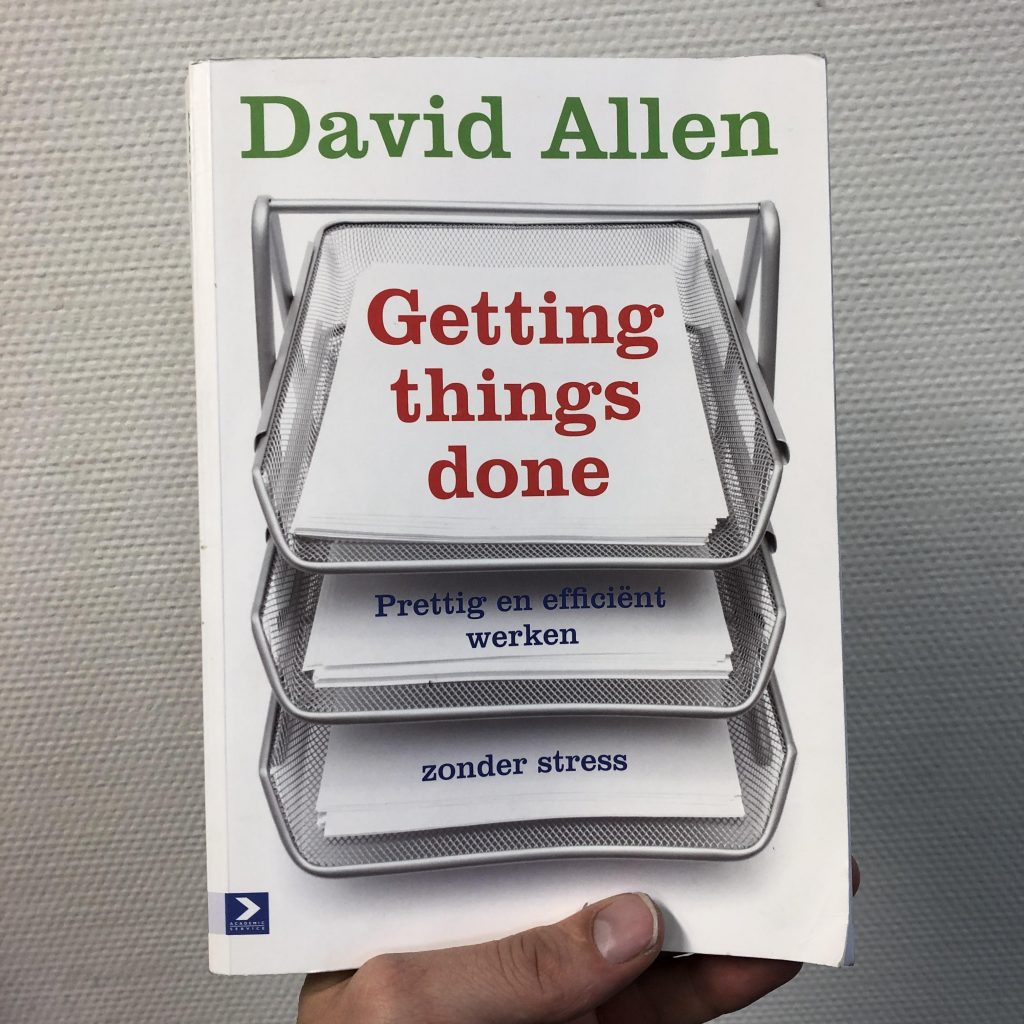For some reason I had never read the David Allen classic Getting Things Done. But I found out that 18 years after its release it’s still a good introduction to time and action management.

David Allen tries to make the natural, systematic. He does so by introducing a 5 step workflow: capture, clarify, organize, reflect, and engage. Allen does a great job of explaining these steps with real world examples and sprinkles his text with inspiring and relevant quotes. His system is very much based in the physical world — notes, folders, file cabinets etc. — which can feel a bit outdated, but does make sense (as he explains).
GTD in less than 200 words
GTD is a way of thinking about organizing. And it has elements you can also find in other organisation methods. But GTD really focuses around three main concepts.
1. Put everything on a list
Yes, everything. The idea is to clear your head, and use your brain to think about things, not to think of things.
2. Define the next ACTION
This is really the hardcore key concept of GTD. Define the next step. Think about results and decide the next action. And it is very important that the next step is an action. If your car needs a check-up, your list entry is not “Car check-up”, your next action and list entry is “Call the garage to make an appointment”. But you may discover that you need the phone number first. So your next action becomes, look up garage phone number. Get it?
3. Update actions
When you’ve written down everything you need or want to do in your system (1), and decided on the next action (2), your system will only work if you regularly revise your system. You do so by updating or working on your actions.
Conclusion
I can see how the GTD method can work, when you stick to it. And even if I don’t think I will apply GTD fully, I certainly take away some key concepts. And I like how the system tries to empower our natural abilities, and to let your brain do what your brain is good at. That is: not keeping track of things, but creating new things.
My only question is that people who could really benefit from such a system, are usually already in over their head. So they would need a coach (or outside help) to successfully implement GTD.
I enjoyed reading GTD and would argue to read it at least once. By just reading it, it already seems to activate a mental process to want to organise and declutter. How else can you explain that I just ordered a labelprinter and 60 feet of bookshelves?